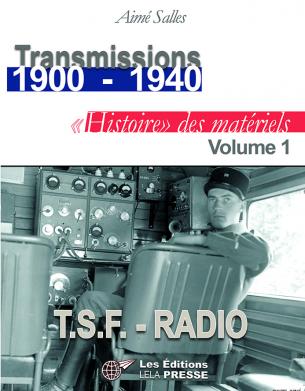This book is based on a technical inventory, carried out in the past by the author, on “French military radio equipment from its origins to 1940”. It retains the most representative devices. He completes the descriptions by illustrating them with numerous period photos, often unpublished, or photos taken of examples which have come down to us and which are the pride of collectors or museums. It links each position to its “technological” era, highlighting advances and their consequences as well as technical problems not yet resolved.
This analysis, technical and cold, serves as a point of support for an approach which seeks to put these materials into practice and to reach, through this means, the people, designers and users, who have approached them. Their testimonies left behind, unfortunately very rare, allow us to go part of the way, “listening” to the material helps to reconstruct part of the missing puzzle. For example, the view of the sketch of the ER 52 installation in the tank shows the hell experienced by the radio operator, stuck between the driver and the ammunition bay, overlooked by the tank commander. It's hot, you can barely see anything, the noise is infernal, it smells like hot oil, copying a Morse code signal in these conditions is one feat, transcribing it on paper is another. Likewise, if the sapper had enjoyed the exercises before the war with an ER 12, because everything worked as in the manual, he appreciated much less, in these days of May 1940, having to play with the "tics" and the “knocks”. So, we forget the “button boxes” to enter into a story of which we believed to have lost the essential points of reference.
Immersed in this era, we will understand better: why was a deserter able, in 1914, to give the French TSF a comfortable lead over that of the adversary? Why did the “pacification of Morocco” campaign save the Eiffel Tower from destruction? Or, a long-controversial subject: is French radio equipment, judged without question the “best in the world” at the end of the Great War, responsible, or not, for the debacle of 1940?



